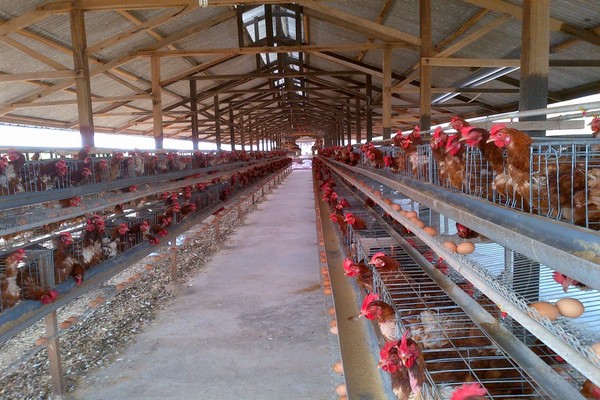UNAIR NEWS – Antibiotic resistance is a global crisis, but approaches to prevent and anticipate this problem are still lacking. Anti-microbial agents (including antibiotics) are essential to ensure human health, animal health, welfare and food security. In almost all countries, unrestricted access to the use of antibiotics by farmers is given without the supervision of veterinary authorities.
The discovery of penicillin revolutionized the treatment of infectious diseases. Global trends in antibiotic consumption in humans, animals and agriculture result in the spread of antibiotic residues into the aquatic and terrestrial environment. In poultry farming, the use of antibiotics is prohibited and should not be used anymore because livestock is an essential source of antibiotic resistance in humans.
Nowadays, breeders need to be familiar with the term probiotics. Therefore, Department of Animal Husbandry, Faculty of Veterinary Medicine, Universitas Airlangga (UNAIR), on Saturday, September 5, 2020 held another webinar “Economic Awakening of Poultry Farming Amid COVID-19 Pandemic”.
On this occasion, A. Berny Yulianto, drh ,. M.Vet. as the speaker presented a topic on probiotics to increase immunity and organic products.
“Probiotics are dietary supplements or feed supplements consisting of non-pathogenic live microbes that give benefits to the host by improving the normal flora of digestive tract and maintaining a normal digestive tract microbial population,” said Doctor Berny.
The mechanism of probiotics to maintain the balance of intestinal microorganisms is through various ways, such as by increasing the attachment between mucosal cells or cell junctions, inhibiting pathogen adherence, eliminating competition through competition for space and nutrient sources, producing antimicrobial substances and modulating the immune system.
Furthermore, the Faculty of Veterinary Medicine alumnus explained that the interaction of probiotic bacteria with the intestine determines the production of cytokines by erythrocytes, this event is an starting event of probiotic immunomodulating activity and this occurs before meeting immune cells.
“Dendritic cells in chickens consist of several types, including bursal secretory dendritic cells, follicular dendritic cells, and thymus dendritic cells,” said Doctor Berny.
Probiotic bacteria can bind directly to the virus and inhibit the virus from binding to the host cell receptors. The adhesion of probiotics to the epithelial surface can inhibit viral adhesion. Probiotics can cause mucosal regeneration. Moreover, probiotics also show direct antimicrobial activity against pathogens by producing antimicrobial substances.
“There are many probiotic products circulating in the market that can be used by breeders, either mixed in chicken feed or drink. They are expected to improve livestock health and minimize the use of antibiotics or the like, “he concluded.
Author: Muhammad Suryadiningrat
Editor: Nuri Hermawan





